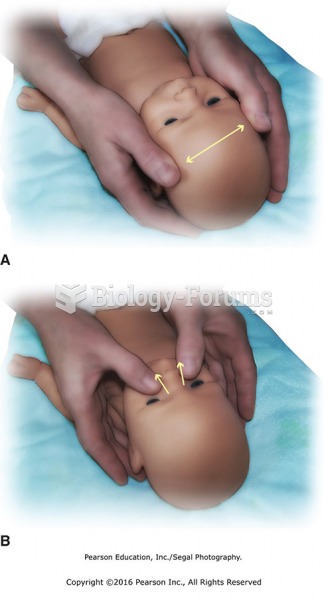|
|
|
More than one-third of adult Americans are obese. Diseases that kill the largest number of people annually, such as heart disease, cancer, diabetes, stroke, and hypertension, can be attributed to diet.
Eating food that has been cooked with poppy seeds may cause you to fail a drug screening test, because the seeds contain enough opiate alkaloids to register as a positive.
Atropine was named after the Greek goddess Atropos, the oldest and ugliest of the three sisters known as the Fates, who controlled the destiny of men.
The newest statin drug, rosuvastatin, has been called a superstatin because it appears to reduce LDL cholesterol to a greater degree than the other approved statin drugs.
Approximately one in three babies in the United States is now delivered by cesarean section. The number of cesarean sections in the United States has risen 46% since 1996.
 Filter in the vena cava prevents an embolus from traveling to the heart, lungs, or brain; A, Greenfi
Filter in the vena cava prevents an embolus from traveling to the heart, lungs, or brain; A, Greenfi
 Place sheet or towel over area to be heated. Use sufficient heat barrier for the heat source used. ...
Place sheet or towel over area to be heated. Use sufficient heat barrier for the heat source used. ...





